



This is a copy of an ABC News article and program of 27th June 2023. It discusses a report by Inner Melbourne Community Legal that has found that people of African, Middle Eastern and First Nations appearance received fines for covid offences disproportionally more than other racial groups. The report claims that this demonstrates disproportional policing and racial profiling.
African and Middle Eastern communities over-represented in COVID-19 fines in Victoria, data shows
By Casey Briggs and Ahmed Yussuf
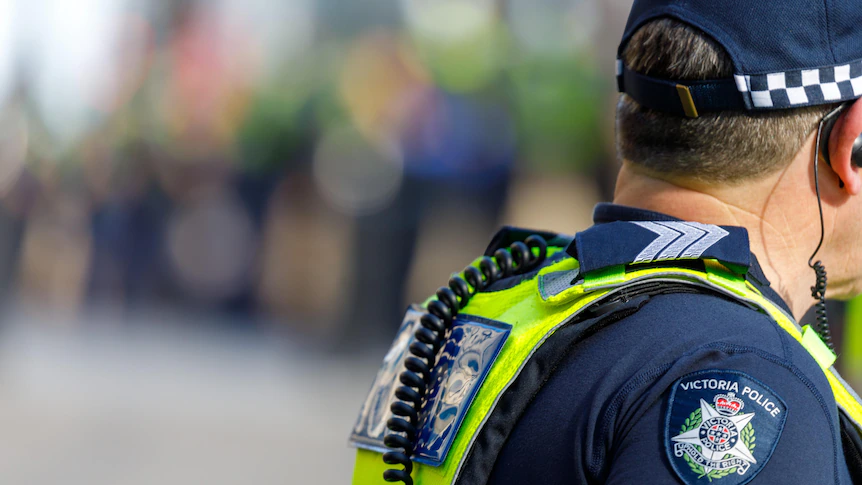
Yusuf Mohamud was working at a community legal centre in Melbourne's north-east when the COVID-19 pandemic began.
Along with the grim memories of long lockdowns, he recalls the regular patrols of police cars in his area, and the fear in the voices of his African-Australian clients, often young men, calling for legal help.
"A lot of the areas I work in have a lot of young African communities," the Somali-Australian lawyer said.
"They're areas that have a lot of police patrol cars going around … where seeing uniformed officers feels like a daily occurrence for some of these young men.
"It's a community that has a strained relationship with police and distrust a lot of the time."
That strained relationship put even more pressure on his clients, as the government introduced broader police powers and large penalties for breaking public health orders.
Fines were introduced for a variety of offences during the pandemic, ranging from $200 for not wearing a face covering, $1,652 for most breaches of stay-at-home orders and up to $4,957 for unlawful gatherings.
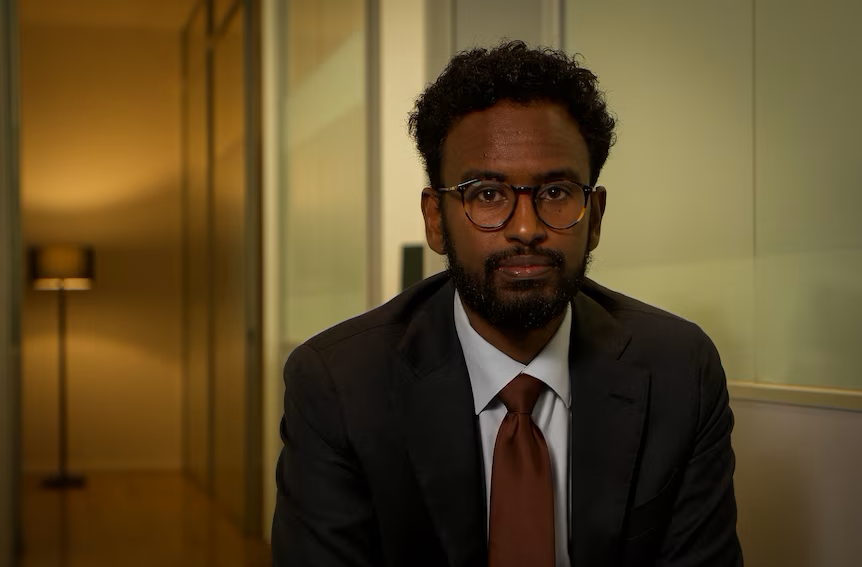
Yusuf Mohamud says many of his clients have been saddled with heavy financial burdens as a result of COVID fines.(ABC News: Daniel Fermer)
As lockdowns began, Mr Mohamud said he grew increasingly worried for some young people who were being fined multiple times.
"Some of them were reaching $6,000, $7,000 worth of fines," he said.
"They had an insurmountable financial burden."
In 2020, police issued at least 37,405 COVID-related fines across the state.
The vast majority of those were issued during periods of lockdown and elevated COVID transmission.
Police issued more fines during lockdowns
Number of fines issued per day
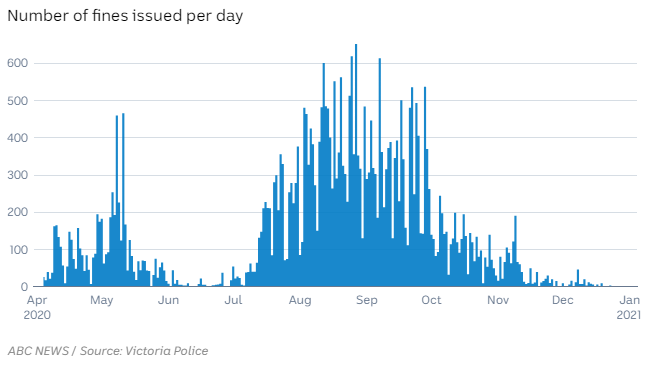
Now, internal police records of those fines have been disclosed by Victoria Police under freedom of information laws.
The full dataset has been reviewed by ABC News.
In about three quarters of cases, the issuing police officer recorded the racial appearance of the offender.
Of the fines with racial appearance recorded, about 20 per cent went to people of either African or Middle Eastern appearance.
According to the 2021 Census only about 5 per cent of Victorians have African or Middle Eastern ancestry, suggesting that this group received roughly four times as many fines as their share of the population.
People of Aboriginal and Torres Strait Islander appearance received 2.5 per cent of the fines, with First Nations people making up just 1 per cent of the state's population.
Victoria Police rejected any suggestion its officers targeted any racial groups.
About 5 per cent of Victorians have African or Middle-Eastern ancestry, yet they got substantially more fines
Share of fines issued to each racial appearance group, as recorded by police
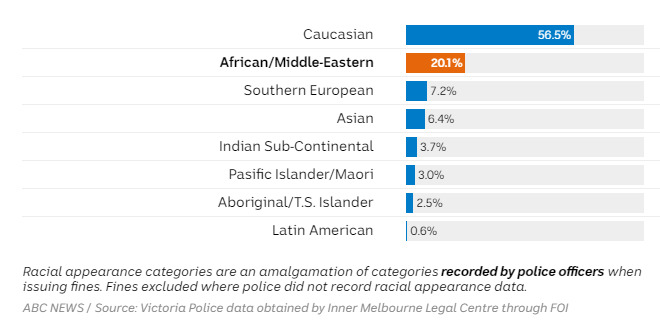
Racial appearance categories are an amalgamation of categories recorded by police officers when issuing fines. Fines excluded where police did not record racial appearance data.
Data evidence of 'disproportionate policing', researcher says
Tamar Hopkins, a racial profiling researcher, worked with the Inner Melbourne Community Legal to obtain and analyse the data.
Dr Hopkins said it revealed more about police activity than the true rate of offending.
"There were so many ways to offend and breach the COVID rules that over the period of the year … just about every Victorian would have infringed the rules at some point," she said.
"We can see, based on who is getting these fines, the way that Victoria Police go out and do their job in terms of making decisions about who to question.
"What we see in Victoria Police's own data is these patterns of disproportionate policing being applied."
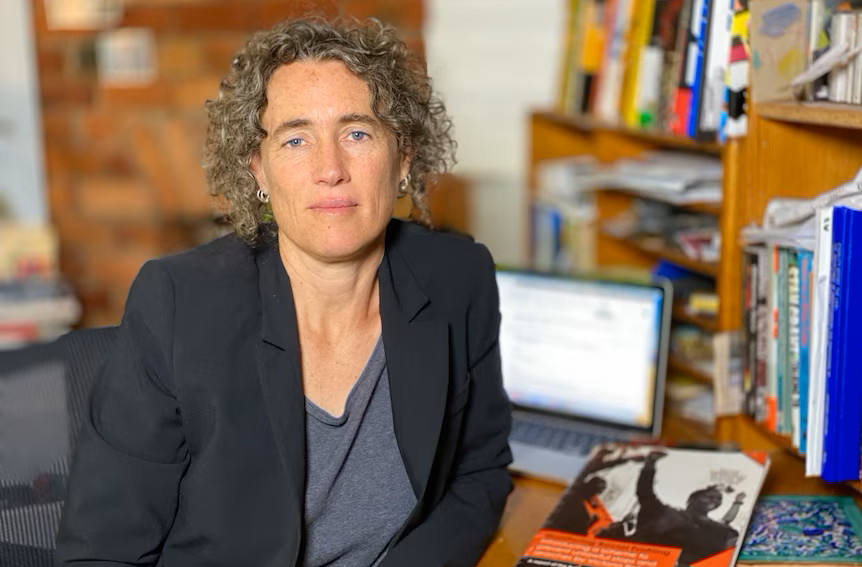
Tamar Hopkins says the disparity in COVID fines is reflective of a disparity in policing.(ABC News: Rudy De Santis)
Dr Hopkins said the data also showed evidence consistent with police racial profiling.
She — along with statistical consultant Dr Gordana Popovic from the University of New South Wales — analysed the fines that were issued for different offences, after observing that police would need to question suspects to establish some breaches of the rules.
"A face mask fine is clearly obvious from inspection of the person, and so we decided that this was a good basis by which to divide up the fines and decide whether the police were engaging in different types of investigative practices in establishing whether a breach had occurred," Dr Hopkins said.
Of the fines issued for not wearing a mask, 12.5 per cent went to people of African or Middle Eastern appearance.
But the broader category of offences which typically required police questioning saw that group fined more often.
More than 20 per cent of those fines went to people of African or Middle Eastern appearance.
People of African or Middle-Eastern appearance made up a greater share of some types of COVID offence
% of fines issued to people of African or Middle-Eastern appearance for each offence type
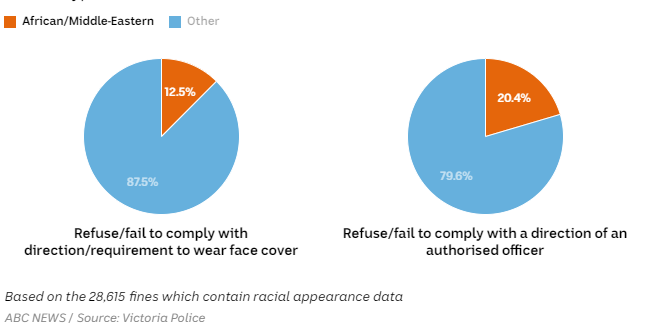
This difference is "statistically significant", meaning that it's unlikely to be due to random chance.
"We were able to establish good evidence to show that there was a real difference in the way that police were policing these two groups of people," Dr Hopkins said.
"That was the basis in order to say that racial profiling was occurring.
"What this shows is a very different style approach to the investigation of a person to see if they have breached a COVID offence … the investigation of African and Middle Eastern groups is far more intensive."
Police deny racial profiling allegations
Victoria Police declined to be interviewed and did not respond to detailed questions about the data from the ABC.
A spokesperson said officers could apply discretion, but that fines were issued for deliberate, blatant and obvious offences.
"Victoria Police rejects any suggestion that officers targeted specific ethnic groups for COVID-19 offences," the spokesperson said.
"This is simply not true."
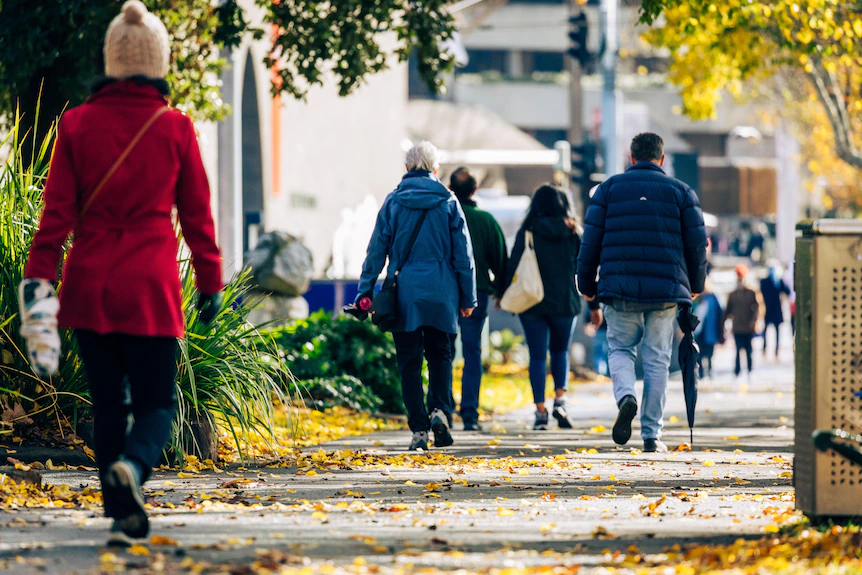
Victoria Police issued tens of thousands of COVID fines for breaches of lockdown restrictions during the pandemic.(ABC News: Danielle Bonica)
Victoria is the only jurisdiction in the country that records racial appearance data for offenders.
It is also the only state or territory to have explicitly banned racial profiling in police policies.
They are both the result of a civil case against Victoria Police alleging racial profiling a decade ago, led by Dr Hopkins.
It saw police at the time acknowledge any policing involving racial discrimination was unacceptable.
Dr Hopkins said racial profiling did not require a deliberate targeting of minority groups.
For example, she said focusing resources in areas with higher concentrations of migrant communities was likely to result in more of that group interacting with police.
"That in itself is a is a form of situational discrimination, and is a form of racial profiling," she says.
"I've so often seen the police issue denials, when they haven't actually gone back and checked their own data.
"It's very easy to issue a denial, but what are they basing their statements on? We are basing our statements on the basis of their own data."
Younger people given more COVID fines
The COVID fines across 2020 also skewed younger, with a median age of 28 across all fines, 10 years younger than Victoria's median age.
For people of African and Middle Eastern appearance the fines were issued to an even younger group, with recipients having a median age of 23.
Offenders of African or Middle-Eastern appearance were, on average, younger than other offenders
Number of fines issued to people at each age
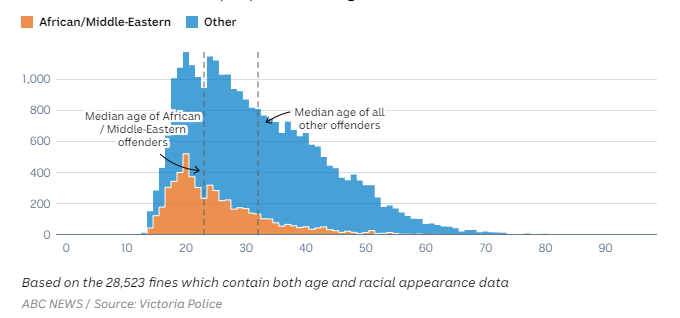
Based on the 28,523 fines which contain both age and racial appearance data
Yusuf Mohamud said the pandemic marked a point where his clients' demographics markedly shifted.
"We used to see vulnerable people such as people with housing issues especially getting a lot of fines for transport and behaviour in public," he said.
"This changed the type of clients that we were seeing … there was a real spike in young African men."
Tens of thousands of fines remain unpaid in Victoria, and Mr Mohamud said the size of the fines can weigh down on young people.
"For many of them, it's sort of insurmountable and they've just put it in the back of their head and they're just going through life because they just can't chip away," he said.
"Many of them live at home with their parents and are studying or just starting out their careers or working low-paying jobs.
"It's just a mental burden that remains with them."
* * * * * *